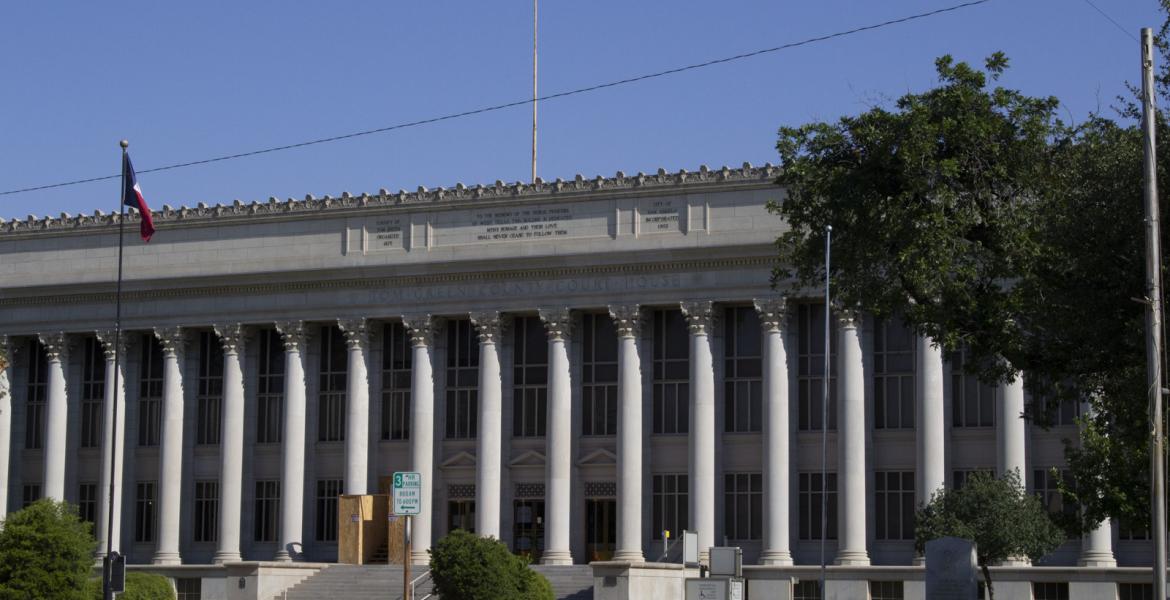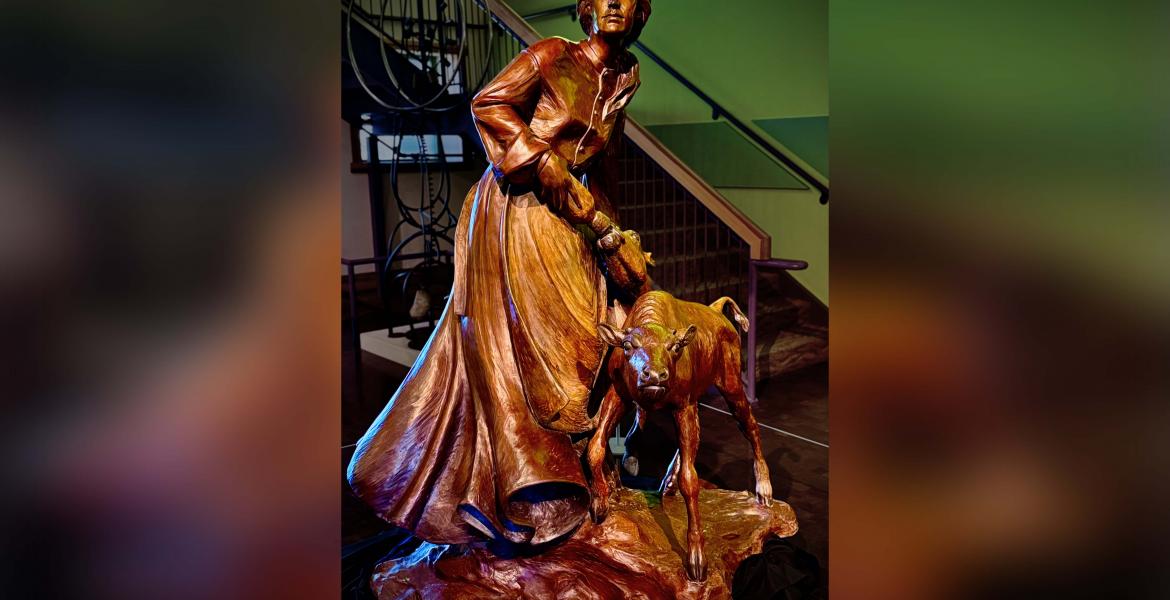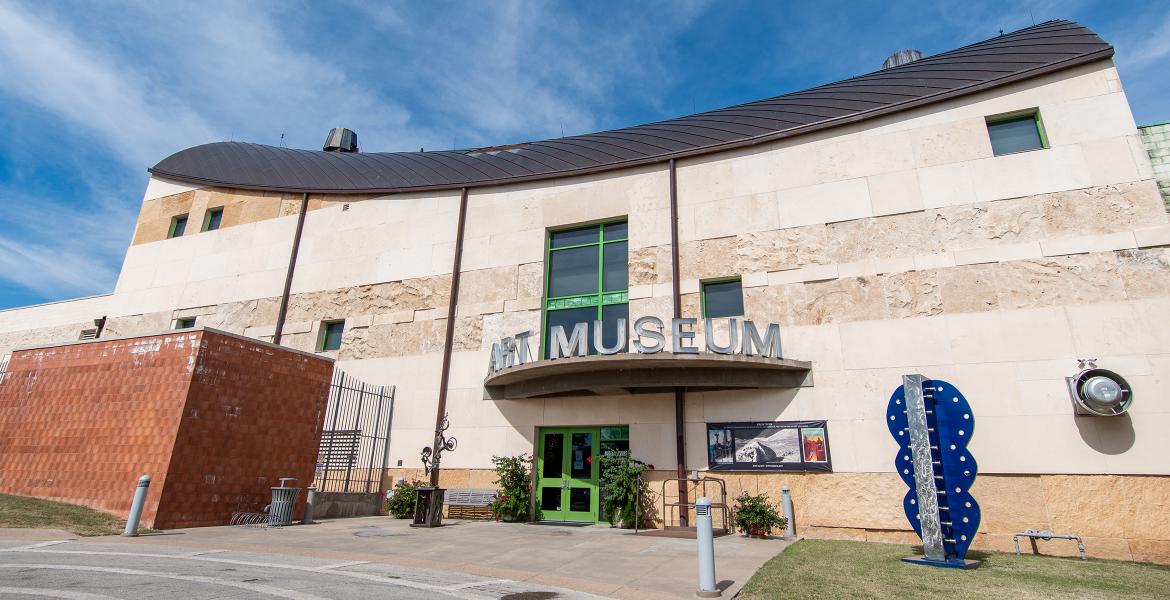SAN ANGELO, TX - The City Council held a special executive session yesterday morning to approve negotiating a $43 million contract to buy approximately 32,000 acres that make up the Ford Ranch located just west of Brady.
Under this land lies the City’s existing groundwater rights to the Hickory Aquifer.
Changes were happening with the trust that operates the Ford Ranch, and City Attorney Theresa James grew anxious about the ability of the City of San Angelo to operate as necessary on the land without legal action. This land is where city wells pump water from the Hickory Aquifer for the city’s water works. City staff and council shared her concerns.
At the same time, the City is looking at expanding the original $120 million Hickory water project with additional wells on land the city does not fully control.
Working with James is Jason Hill, an Austin attorney specializing in local government law and groundwater. He was hired by the City to shepherd the land purchase, and also works with the city as an attorney for the West Texas Water Partnership.
Hill said that recently a trust managing the ranch had come under new management, and the City noted some “differences in interpretation about what the City’s [water] rights were with respect to what the ranch’s rights were to using that water.” He and the City grew uneasy.
Then in April, the ranch was listed for sale for $60 million.
“Look, we have $120 million invested in this deal already,” Morrison said as he expressed his concerns with the new trust management and the threat the land will be sold to an unknown party, or worse, split into several tracts and several owners who potentially could become opponents in another water battle.
A new owner or multiple owners introduced the issue of having to renegotiate its current water rights with this/these new owner(s). This could mean a loss of the Hickory investment, Morrison said.
The City’s attorneys considered the cost of defending lawsuits, however legitimate, with a handful of owners and courts not sympathetic to the 45-year history of the City’s water fight there. James and Hill warned that the City could get entangled in never-ending lawsuits, which would not only risk hefty legal fees, but also, potentially, a loss of all water rights.
To prevent a potential costly water fight, the City went so far as to consider taking a portion of the property where the wells are located through eminent domain, but that would be equally costly to the City.
Alas, purchasing the land was the last, and best option in the eyes of the City Council.
The City Council members have been “very deliberate in considering what options [the City] might have,” James said. They unanimously chose to purchase the land.
The Ford Ranch’s History
The ranchland is owned by a trust called the Ford Ranch. The land’s second owner was the renowned Aggie and successful Brady rancher G. Rollie White.
According to a 1964 article in the San Angelo Standard-Times, White originally leased the land with a $1,000 gift and $20,000 loan from his father. He had graduated from A&M and business school at Eastman Business College in New York at around the turn of the century. Two years after returning to west Texas to work with his father, in 1902, the Whites purchased the Ford Ranch.
White died in 1965 at the age of 89. Since then, the land was held in a trust of the G.R. White family.
Water management has a history with the ranch. According to the 1964 article, “When the Whites acquired the ranch, it had only one stock watering tank. Two years later, 600 head of cattle died from lack of water.”
It is under this ranch that the City of San Angelo purchased vast water rights in the Hickory Aquifer 45 years ago.
Background on The Hickory
The Hickory aquifer is the only ground water supply the City owns and has access. The City purchased rights to harvest that water in the early 1970s. The well field remained mostly dormant throughout the years. In 1982, the Hickory Underground Water Conservation District No. 1 was allowed to form in McCulloch County by the State of Texas.
Wary landowners in McCulloch County viewed the intentions of the City of San Angelo nefariously. The new water district created rules preventing water rights owners from transporting water outside the county, a prohibition aimed squarely at the City of San Angelo. It was no secret why the City bought water rights 60 miles away.
A 15-year legal battle ensued that was settled in 1997 that set forth the water allocations that the City of San Angelo enjoys today.
It wasn’t until 12 years later, in 2009, that the city commenced building the $120 million Hickory water supply project that included new water wells, pumps, a 60-mile pipeline, and a separate and modern water treatment plant next to the legacy water treatment plant. It was called the Hickory Aquifer Project, or “The Hickory” for short.
The project was completed in early 2015. Since then, the city has banked much of its allotment, about 40,000 acre-feet, and used the Hickory water only enough to keep the pipeline and water treatment facility lubricated while the plentiful flow of surface water from Lake Ivie remains the City’s primary source of water.
The Hickory groundwater is the City Water Department’s backup supply. Should surface water disappear due to a drought, the Hickory can easily supply 9 million gallons per day, or about three-fourths of the daily water demand of 12 mgpd.
Late Moves on the Ford Ranch
On April 19, real estate broker Chas. S. Middleton & Son of Lubbock listed the 31,788.87-acre ranch for sale for $60 million. Morrison is ecstatic that the City’s conditional offer of $43 million was accepted. He believes $1,350 per acre is a good deal.
The purchase will be financed with a loan using the cash flow from the City’s water enterprise fund to service it. City Manager Daniel Valenzuela stressed there will be no water fee hike or tax increase to finance the transaction.
In late 2015, the City of San Angelo inaugurated a higher water rate structure to finance a future large water project expected to cost as much as $136 million. Earlier this year, facing fierce public opposition, the City shelved a proposal to build a $150 million water treatment facility that could reclaim and treat sewer water.
Valenzuela and City Water Utilities Director Bill Riley said the land purchase is in line with a five-year water development plan recently finished. Instead of a large project, Riley anticipates multiple smaller initiatives. He said the City is moving forward with a previously proposed project to increase Hickory capacity. That project will cost just under $40 million and is in addition to the land purchase.
City Plans to Flip the Ranch Quickly
Morrison said the City isn’t interested in owning all of the Ford Ranch long term. He anticipates the City will sell all but a small portion of the acreage where the Hickory wells are located in the near future. In addition, City attorneys will finalize the land’s water rights, and convey that those rights will be clear to future owners, and in the best interest of the City.
“That way, before a new owner purchases the land, they will know exactly what the water rights situation is,” James said.
“The City intends to market the property to a new owner or owners using the attractive selling point of 25 percent ownership of minerals on the land to recoup much of the purchase price,” Morrison said. When pressed, Morrison and the City staff believe most of the cost of the land purchase can be recouped reselling it whole, or in smaller parcels.
Valenzuela likened the land deal as trading an asset for an asset with the benefits of avoiding future costly legal battles by allowing the City to refine the City’s water rights under its own terms.
Monday, the City Council voted 7-0 to instruct the City Manager to move forward with the purchase contract and obtaining financing. The certificates of obligation will not need approval of voters.
Anticipating Negative Reaction
Morrison expressed concern the land deal will be met with fierce opposition from some quarters in the city. So far, reaction has been supportive. Morrison’s former rival for mayor in the 2015 election David Nowlin responded Monday night via Facebook.
“Hats off to our mayor and city council members! Buying the ranch that covers our Hickory Aquifer lease is a brilliant move. Don't waste a minute! Get it done! Congratulations! You finally started earning the big bucks we pay you. LOL,” Nowlin stated.
Maura Ballard contributed to this report.
Subscribe to the LIVE! Daily
Required






Comments
Listed By: scott zaruba
city could have used some of this to pay the cops what they promised.
- Log in or register to post comments
PermalinkListed By: Brook Davis
So, the city can afford to pay millions of dollars for a piece of land that they don't intend to keep but they can't afford to pay our police officers the raise they had already negotiated with them?
- Log in or register to post comments
PermalinkListed By: John Chinn
All money is not created equal. The money used to purchase the ranch is coming from the water revenue fund. That money would not be available for police raises which will eventually come to pass out of the general fund. Everyone needs water and everything necessary needs to be done to protect our rights to the water in the Hickory Aquafer. Purchasing the ranch gives the city control over water rights. When selling it there would be a clear contract to show water rights for ALL wells belong to the city. With a $120 million already tied up in the pipeline it is a smart decision to spend $43 million to guarantee water rights. I think it was a smart decision for the council to vote unanimously on this issue. Getting guaranteed water rights at essentially no cost once the ranch is sold makes it a no brainer.
- Log in or register to post comments
Permalinkis buying the same water over and over, then expecting it to be there when you finally need it.
What did the city lawyers do wrong before spending the 120m that we now don't have title and have to pay for the water all over again?
If we have to buy the land to get the water, what makes the current negotiators think they can get a clear title this time? Austin screwed us once already so this sounds like a "fool me twice" deal, doesn't it?
Can you even imagine the potential liability for taxpayers by owning that much land ? Once the feds find out that the ranch is inhabited by snipes, there will be millions of additional costs just to restore and preserve their habitat!
Anyway, put me down as really pissed off that buying a county-sized ranch doesn't need voter approval.
- Log in or register to post comments
PermalinkListed By: Concho Mike
How much was the wastewater reuse project? The one that would have given San Angelo sole control of, and a constant supply of a fantastic quality drinking water that ONLY San Angelo would control.
So now we have a SUPPOSEDLY secure source of radioactive water. Yum, sign me up for more of that, and just for fun increase my bill 5% please.
Oh, and then more wells too? Don't wells supply a finite amount of water? That's why we're banking it now right? Why then do we need more wells if we are banking it?
Trash contract all over again folks. We are not getting the complete story. Again. BOHICA.
- Log in or register to post comments
PermalinkListed By: Doctor Ding-bat
Maybe next the city council can hire somebody for $250 thousand to conduct a study on how those cows in the 3rd picture were able to build better cow trails for them to travel on than 90% of the roads the city maintains for us to drive on..........
- Log in or register to post comments
PermalinkPost a comment to this article here: